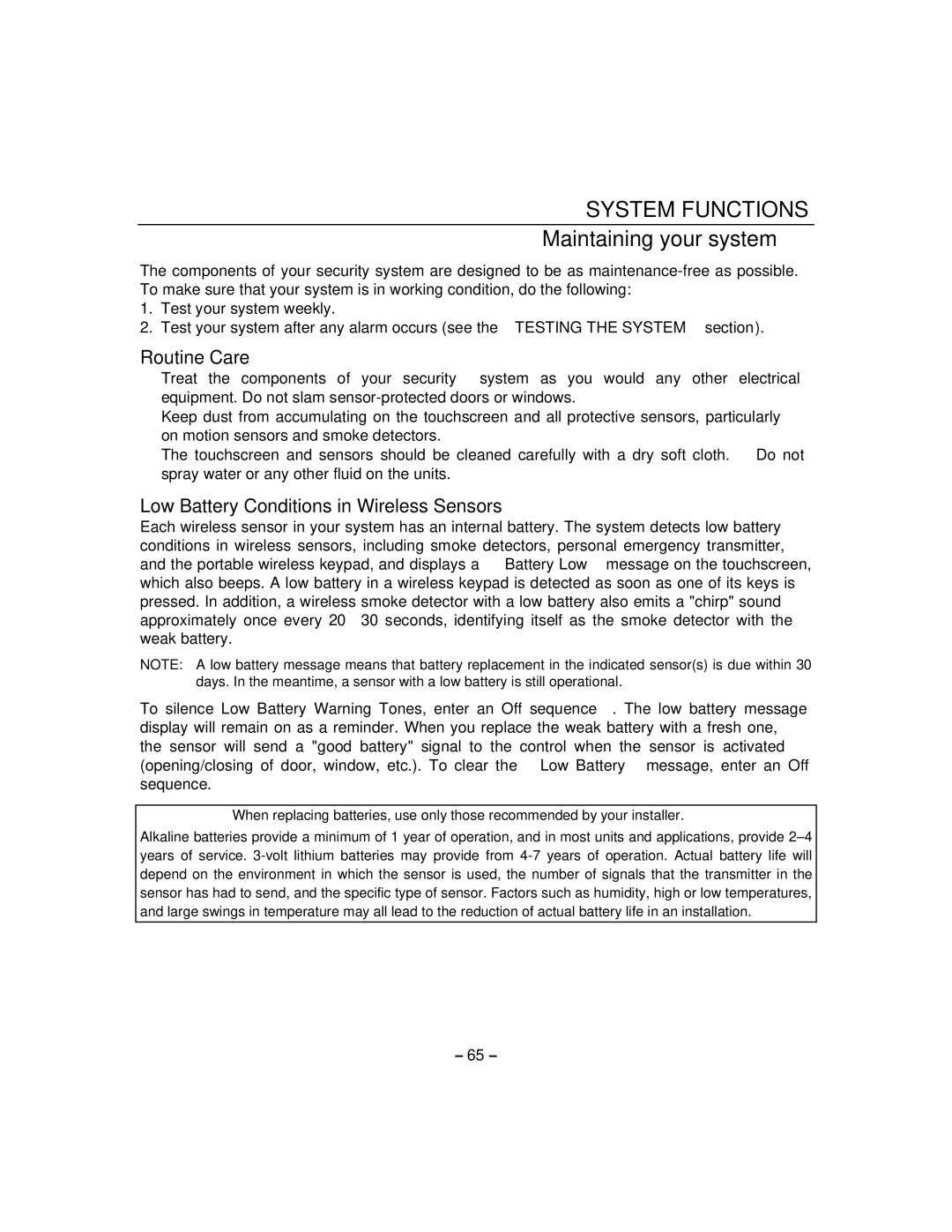
SYSTEM FUNCTIONS
Maintaining your system
The components of your security system are designed to be as
1.Test your system weekly.
2.Test your system after any alarm occurs (see the TESTING THE SYSTEM section).
Routine Care
•Treat the components of your security system as you would any other electrical equipment. Do not slam
•Keep dust from accumulating on the touchscreen and all protective sensors, particularly on motion sensors and smoke detectors.
•The touchscreen and sensors should be cleaned carefully with a dry soft cloth. Do not spray water or any other fluid on the units.
Low Battery Conditions in Wireless Sensors
Each wireless sensor in your system has an internal battery. The system detects low battery conditions in wireless sensors, including smoke detectors, personal emergency transmitter, and the portable wireless keypad, and displays a “Battery Low” message on the touchscreen, which also beeps. A low battery in a wireless keypad is detected as soon as one of its keys is pressed. In addition, a wireless smoke detector with a low battery also emits a "chirp" sound approximately once every
NOTE: A low battery message means that battery replacement in the indicated sensor(s) is due within 30 days. In the meantime, a sensor with a low battery is still operational.
To silence Low Battery Warning Tones, enter an Off sequence. The low battery message display will remain on as a reminder. When you replace the weak battery with a fresh one, the sensor will send a "good battery" signal to the control when the sensor is activated (opening/closing of door, window, etc.). To clear the “Low Battery” message, enter an Off sequence.
When replacing batteries, use only those recommended by your installer.
Alkaline batteries provide a minimum of 1 year of operation, and in most units and applications, provide
– 65 –
